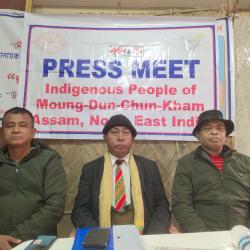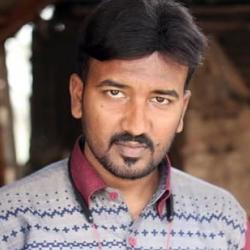It was believed that in ancient days, during the forefather’s time, the entire world was enveloped with total darkness and day and night could not be differentiated. The darkness was so thick that people could not even go out for collection of firewood and water.
They remained inside their homes for six days and by then they ran short of everything.
In order to keep the fire burning inside homes, they burnt every available thing and when nothing was left they were compelled to burn even horns of buffaloes, mithuns and cows that were hung in front of their houses.
On the seventh day the light can as usual. The people of the earth became extremely and by way of giving thanks to God the NOKNYU LEM FESTIVAL was held. During Noknyu Lem Festival, no worship is performed but certain rules are strictly observed.
This festival is held on the eleventh month of the Chang calendar that falls during july. The Ungshedbou of Ung Clan makes the counting of the days and announces of the dates of the festival. It should be a sudden announcement leaving two days gap only. It starts on the last day of the moon, i.e. flour grinding day. Domestic animals are slaughtered, young and old spin tops, while music and laughter pervades from the womenfolk as they play the Kongkhin (flute) made out of bamboo splits. Village streets, houses and their surroundings are cleaned while firewood and water are stocked.
The second day which is the dark-moon day is called “Youjem”. On this day no one goes out of the village, even for drawing water. During Noknyu Lem Festival people exchange gifts and food items amongst friend and relatives. Meat, wine and freshly packed bread are abundantly used. Games like top spinning, tug of war, high jump, long jump, climbing on the oiled pole and jumping and grabbing big chunks of well cooked meat hung in the rows along a bamboo rope are played. The womenfolk play on the Kongkhin. They too compete with each other on this instrument. Men and women, young and old, all engage themselves in feasting and merrymaking the whole day but do not indulge on dancing.
On this occasion the footpath and all the houses are decorated by placing leaves, a kind of herbal shrub called “Ngounaam” (Eiziholfziablanda).It is a must to plant this shrub in front of every house to ward off evil spirits.
The people especially the children, put the leaves in their ear lobs so that no evil spirit will herm them. In the evening, at the time of sunset, everybody remains inside the houses. No man walks or roams outside. During this hour, in the front and the back door of every house a seed called “Vui Lang” (Tap seed) is buried inside paddy husks and burnt. Every member of the family remains still to hear the crackling sound of the seed. The tap seed explodes and if the sound and the exploding fragments bounce back towards the house, it is a bad omen and if the sound is good and the fragments bounce off it means good fortune.
At this hour the Changs believe that, “Shambui Mughgha”, a God from heaven descends and visits every house and any one found outside is harmed. The third day the village surroundings and approach roads are cleaned. After the celebration of this festival the other activities like cleaning of paths leading to the fields and neighboring village start. A Daughter born in this month is named as Monyu.
Pranjal A Sharma, Guwahati
- 15771 reads










Add new comment